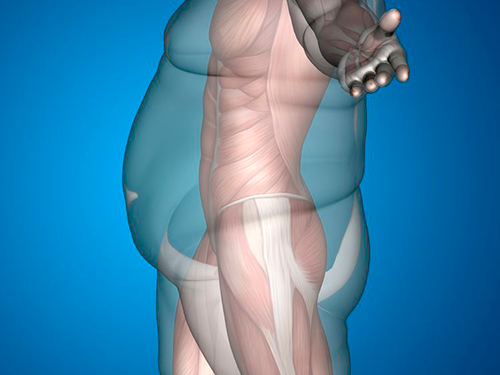Bariatric surgery has become a popular and effective solution for individuals struggling with obesity in Dubai. This life-changing procedure not only helps with weight loss but also improves many obesity-related health conditions. However, like any major surgery, it comes with long-term nutritional challenges that patients must be aware of to maintain their health and wellness. In this article, we will explore the common nutritional issues faced after bariatric surgery in Dubai, discuss the benefits of the surgery, and provide guidance on how to live healthily following the procedure.
Understanding Bariatric Surgery in Dubai:
Bariatric surgery in dubai (جراحة السمنة في دبي) is a surgical approach designed to help individuals lose weight by modifying the digestive system. Common procedures include gastric bypass, sleeve gastrectomy, and adjustable gastric banding. These surgeries reduce the size of the stomach or reroute the intestines, leading to decreased food intake and nutrient absorption.
Benefits of Bariatric Surgery in Dubai:
- Significant and sustainable weight loss
- Improvement or resolution of diabetes, hypertension, and sleep apnea
- Enhanced mobility and quality of life
- Increased life expectancy
- Boosted mental health and self-confidence
Dubai’s advanced medical infrastructure and skilled healthcare professionals offer patients access to modern bariatric surgery techniques, leading to excellent outcomes.
Common Long-Term Nutritional Challenges After Bariatric Surgery:
While bariatric surgery can transform lives, patients often face long-term nutritional challenges that require ongoing management. Understanding these challenges is crucial to maintaining optimal health after surgery.
Nutrient Deficiencies:
The most significant concern post-surgery is the risk of nutrient deficiencies due to reduced stomach size and altered digestion.
- Vitamin B12 Deficiency: Bariatric surgery often leads to reduced absorption of Vitamin B12, causing anemia, fatigue, and neurological issues if untreated.
- Iron Deficiency: Limited iron absorption can lead to iron-deficiency anemia, characterized by weakness and dizziness.
- Calcium and Vitamin D Deficiency: These are common and can cause bone loss, osteoporosis, and fractures.
- Protein Deficiency: Since food intake is limited, patients may struggle to consume enough protein, vital for muscle maintenance and healing.
- Folate, Zinc, and Other Micronutrients: Deficiencies in folate and zinc can also occur, impacting immune function and overall health.
Dumping Syndrome:
Dumping syndrome happens when food moves too quickly from the stomach to the small intestine, causing symptoms like nausea, diarrhea, sweating, and dizziness. This often occurs when high-sugar or fatty foods are consumed and can affect nutrient absorption.
Dehydration:
Due to limited stomach capacity and changes in digestive function, patients may not drink enough fluids, risking dehydration, which can affect kidney function and energy levels.
Gastrointestinal Issues:
Patients may experience nausea, vomiting, constipation, or diarrhea after surgery, which can affect their ability to maintain balanced nutrition.
Weight Regain:
Improper dietary habits post-surgery can lead to weight regain. Nutritional challenges can contribute to difficulty maintaining a healthy weight without adequate support and education.
Managing Nutritional Challenges: Tips for Long-Term Success:
Balanced Diet and Portion Control:
Focus on nutrient-dense foods, including lean proteins, vegetables, whole grains, and healthy fats. Avoid high-sugar, high-fat, and processed foods that can trigger dumping syndrome and hinder weight loss.
Regular Vitamin and Mineral Supplementation:
Taking prescribed supplements such as multivitamins, calcium with Vitamin D, iron, and Vitamin B12 injections or pills is essential to prevent deficiencies.
Stay Hydrated:
Drink water consistently throughout the day but avoid drinking large amounts during meals to prevent stomach discomfort and ensure better nutrient absorption.
Monitor Symptoms and Health Regularly:
Regular blood tests and follow-ups with healthcare providers help detect deficiencies early and allow for timely adjustments in diet or supplements.
Incorporate Physical Activity:
Exercise aids in weight maintenance, muscle preservation, and overall health, complementing nutritional efforts.
Healthy Lifestyle After Bariatric Surgery in Dubai:
Adopting a healthy lifestyle is vital after bariatric surgery to ensure long-term benefits and avoid complications.
Psychological Support:
Weight loss surgery can impact mental health. Support groups, counseling, or therapy help patients cope with lifestyle changes and emotional challenges.
Education and Awareness:
Learning about nutrition, food choices, and portion sizes empowers patients to make informed decisions and avoid common pitfalls.
Personalized Care Plans:
Every patient’s needs are unique, and customized nutrition plans can optimize outcomes, taking into account individual preferences and medical history.
Managing Nutritional Challenges in Dubai:
In Dubai, bariatric centers emphasize comprehensive post-surgery care. Patients are usually provided with personalized dietary plans, supplements, and regular blood tests to monitor nutritional status. Follow-up visits with dietitians and healthcare providers are essential to detect and manage any deficiencies early.
Supplements and Diet:
Patients typically require lifelong vitamin and mineral supplements, including multivitamins, calcium, vitamin D, and B12 injections or oral supplements. A high-protein diet rich in lean meats, dairy, legumes, and nuts is encouraged to maintain muscle mass.
Lifestyle Adjustments:
Adapting eating habits, such as eating small frequent meals, chewing food thoroughly, and avoiding high-sugar and high-fat foods, helps reduce complications like dumping syndrome and promotes better nutrient absorption.
Importance of Patient Education and Support:
Long-term success after bariatric surgery in Dubai depends heavily on patient education. Understanding the need for ongoing nutritional management helps patients make informed decisions and adhere to lifestyle changes. Support groups and counseling services often complement medical care, providing motivation and practical advice.
Conclusion:
Bariatric surgery in Dubai offers a powerful tool to combat obesity and improve overall health. However, the long-term nutritional challenges require commitment, education, and careful management. By understanding potential deficiencies, adopting a balanced diet, staying hydrated, and seeking continuous support, patients can enjoy the full benefits of their surgery while maintaining optimal health. Prioritizing a healthy lifestyle after bariatric surgery ensures lasting success and a better quality of life.














